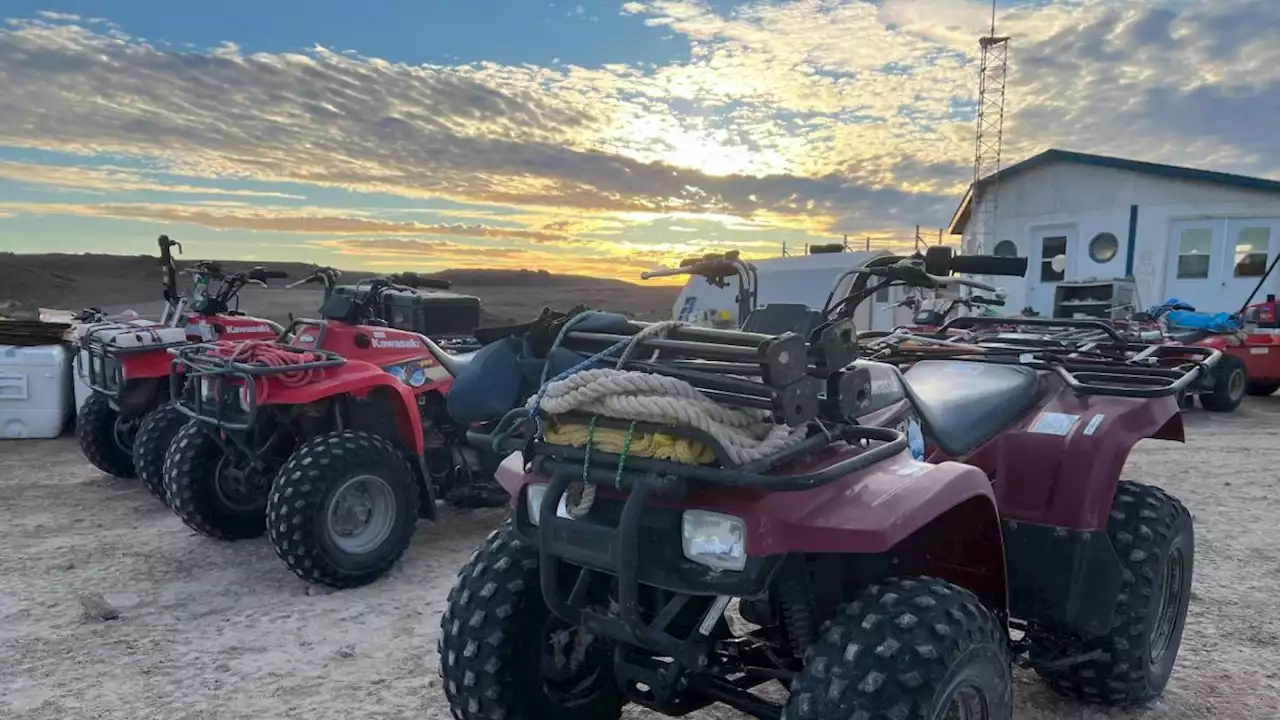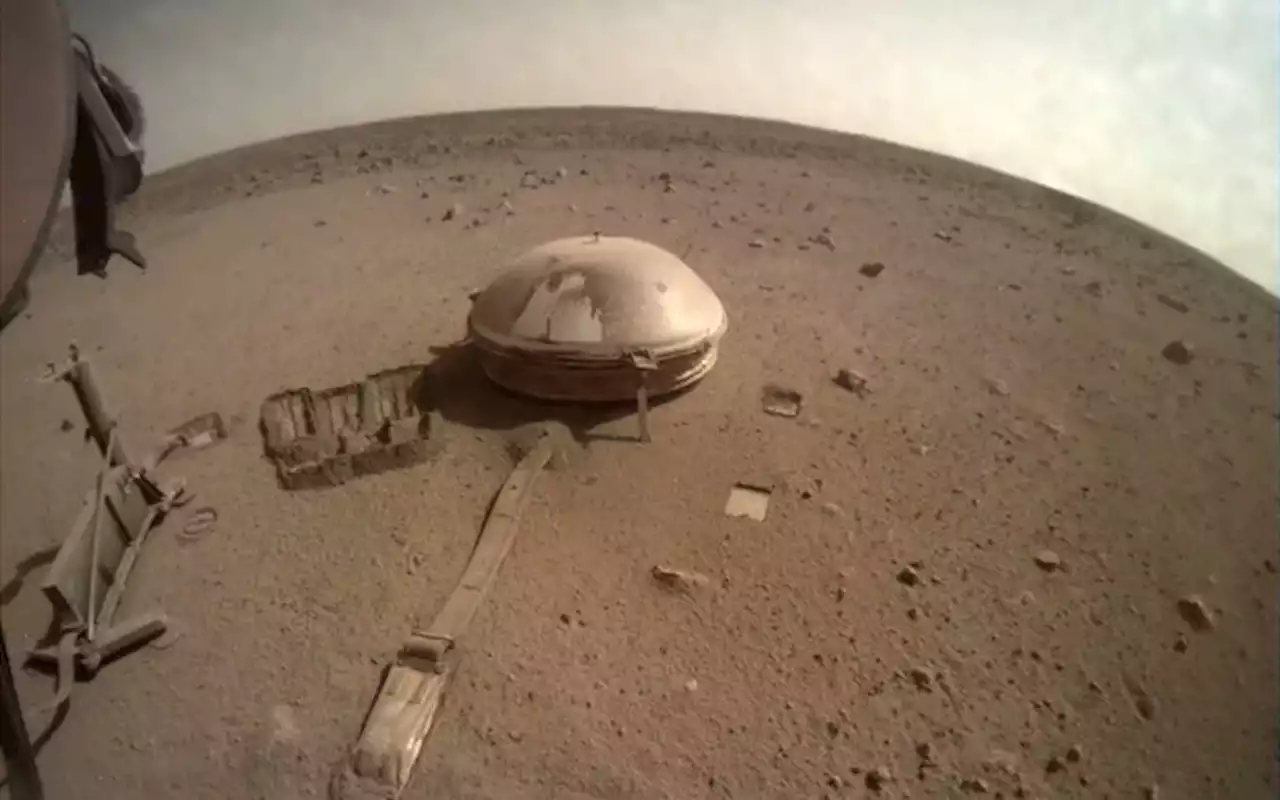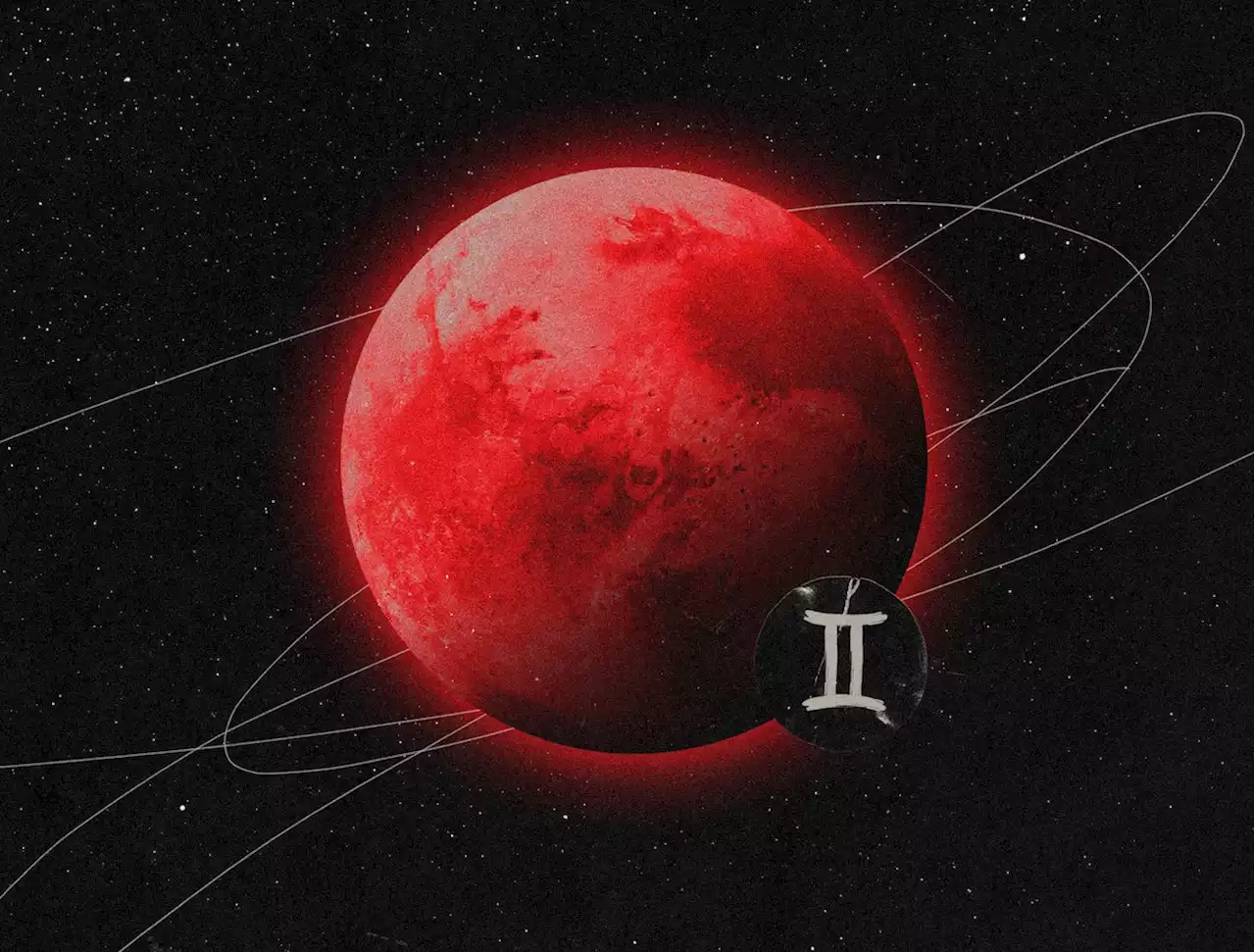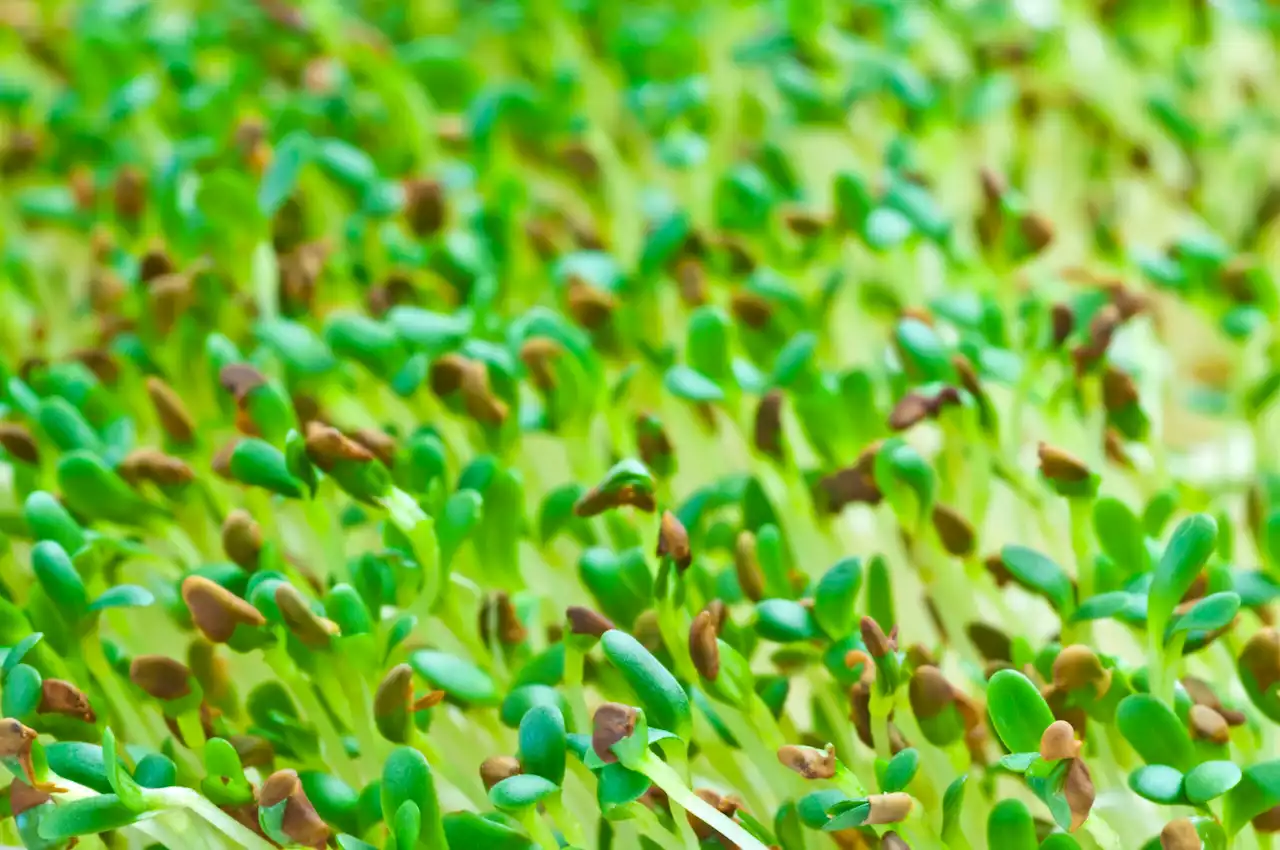According to a new study, alfalfa sprouts are a contender for the first plants future Mars colonizers could farm.
, alfalfa plants are the first greens that future astronauts should plant on Mars. The team of researchers from Iowa State University found that thecan survive in tough volcanic soil similar to what is found on Mars. It could be also be used as an additional fertilizer ingredient to grow other food like lettuce, turnips, and radishes.
“The low nutrient content of Martian soil and high salinity of water render them unfit for direct use for propagating food crops on Mars,” write the researchers. “It is therefore essential to develop strategies to enhance nutrient content in Mars soil and to desalinate briny water for long-term missions.”
Producing a copy of Martian regolith, or the loose, unconsolidated soil on top of bedrock, here on Earth is quite challenging. The team put together the best approximation they could, before testing different seeds in it. Martian soil is largely weatheredand previous studies show that basaltic regolith contains multiple macro elements and minor elements .
The team found that the alfalfa didn’t need any additional fertilizer to grow as healthily as it does in Earth soil. They then used the alfalfa as a fertilizer in the simulated Martian soil and successfully grew lettuce, turnips, and radishes. These types of plants plants are amendable for space farming, as they do not need much water or maintenance and can grow rapidly.
But this study does not mean that astronauts are ready to start farming Mars. The experiment required fresh water, which Mars currently doesn’t have readily available. The team theorizes that the
United States Latest News, United States Headlines
Similar News:You can also read news stories similar to this one that we have collected from other news sources.
 This Is The First Plant We Should Grow on Mars, New Study FindsOnce we've overcome all the challenges involved in getting to Mars, we'll then have to figure out how to make life sustainable there – and growing and cultivating crops is going to be a major part of that.
This Is The First Plant We Should Grow on Mars, New Study FindsOnce we've overcome all the challenges involved in getting to Mars, we'll then have to figure out how to make life sustainable there – and growing and cultivating crops is going to be a major part of that.
Read more »
 A very SF horoscope: Virgo, Mercury and Mars enter the chatVirgo season brings a Mercury retrograde that’s actually helpful.
A very SF horoscope: Virgo, Mercury and Mars enter the chatVirgo season brings a Mercury retrograde that’s actually helpful.
Read more »
 A month on 'Mars': Flags and footprints of the moon and ArcticRod Pyle is an author, journalist, television producer and editor in chief of Ad Astra magazine for the National Space Society. He has written 18 books on space history, exploration and development, including 'Space 2.0,' 'First on the Moon' and 'Innovation the NASA Way.' He has written for NASA’s Jet Propulsion Laboratory, Caltech, WIRED, Popular Science, Space.com, Live Science, the World Economic Forum and the Library of Congress. Rod co-authored the 'Apollo Leadership Experience' for NASA's Johnson Space Center and has produced, directed and written for The History Channel, Discovery Networks and Disney.
A month on 'Mars': Flags and footprints of the moon and ArcticRod Pyle is an author, journalist, television producer and editor in chief of Ad Astra magazine for the National Space Society. He has written 18 books on space history, exploration and development, including 'Space 2.0,' 'First on the Moon' and 'Innovation the NASA Way.' He has written for NASA’s Jet Propulsion Laboratory, Caltech, WIRED, Popular Science, Space.com, Live Science, the World Economic Forum and the Library of Congress. Rod co-authored the 'Apollo Leadership Experience' for NASA's Johnson Space Center and has produced, directed and written for The History Channel, Discovery Networks and Disney.
Read more »
 Mars InSight Doesn't Find any Water ice Within 300 Meters Under its FeetSpace science doesn’t always go as planned. Sometimes when scientists think they’ve made a remarkable discovery that will make human expansion into the cosmos easier, they are just flat-out wrong. But the beauty of science is that it corrects itself in the presence of new data. The people responsible for planning future Mars missions will … Continue reading 'Mars InSight Doesn’t Find any Water ice Within 300 Meters Under its Feet'
Mars InSight Doesn't Find any Water ice Within 300 Meters Under its FeetSpace science doesn’t always go as planned. Sometimes when scientists think they’ve made a remarkable discovery that will make human expansion into the cosmos easier, they are just flat-out wrong. But the beauty of science is that it corrects itself in the presence of new data. The people responsible for planning future Mars missions will … Continue reading 'Mars InSight Doesn’t Find any Water ice Within 300 Meters Under its Feet'
Read more »
 How Weak Will Astronauts Feel When They First set Foot on Mars After Months in Space?A new mathematical model can simulate if astronauts will be operate in Martian gravity after months of flying through space.
How Weak Will Astronauts Feel When They First set Foot on Mars After Months in Space?A new mathematical model can simulate if astronauts will be operate in Martian gravity after months of flying through space.
Read more »
 2022’s Mars In Gemini Brings Confusion and PossibilityMars transits Gemini for seven months — here's how to make the most of it.
2022’s Mars In Gemini Brings Confusion and PossibilityMars transits Gemini for seven months — here's how to make the most of it.
Read more »
